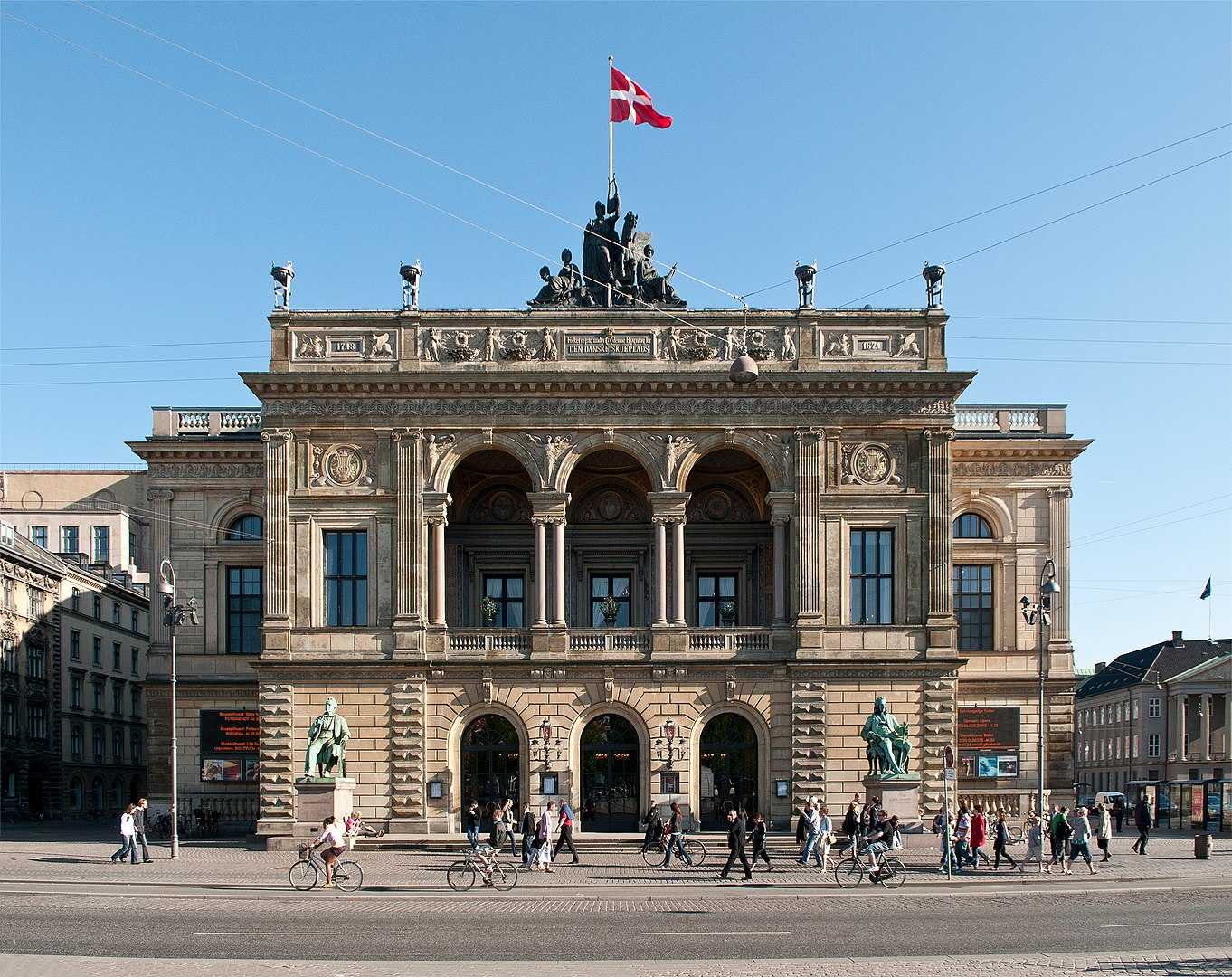The Royal Theatre brings together ballet, theatre and opera under one roof, providing the main focus of the arts scene in Copenhagen.
Frederik V, who became king in 1746, was behind the initial plans for Denmark’s first national theatre but it was not until the 1770s that the theatre was opened to the general public. The Royal Theatre has undergone many changes since it was inaugurated in 1748, but it has always been on the same street.
Court Master Builder Nicolai Eigtved furnished the original building that was to be the new theatre, but when the political system changed in 1849, the status of the Royal Theatre changed with it. The building was small and run-down and facing intense competition from new and sumptuous theatres springing up throughout Copenhagen., so a new building was put up adjacent to the old one, The latter is called the Old Stage and today it’s where the classical operas and ballets are performed.
At the beginning, there was only a very small troupe of house performers, but this grew as the Royal Orchestra was acquired and a national music theatre created. But the schools provide the key to the artistic development of the theatre. Many of Denmark’s leading actors and singers first danced their way across the stage at The Ballet School which began in 1756. The Opera School followed just two years later, but a drama school wasn’t added until a century later. The combination of these arts under one roof, together with the small number of performers meant that many "mixed" shows were staged so that singers, actors and dancers could play their parts either in the form of a single production or as linked shows. This trend died out as a growing number of people believed that the arts should be separated, with the result that a new stage was built in the same building, for the "speaking arts". It soon became affectionately known as the Starling Box due to its connection to the main building via a tower-like building.
Danish law decrees that the Royal Theatre should give priority to Danish works and the classics. Paradoxically, it also demands that first priority be given to modern theatre to keep it alive through new initiatives.

Temporarily Closed !
- Monday:
- Open 24 Hours
- Tuesday:
- Open 24 Hours
- Wednesday:
- Open 24 Hours
- Thursday:
- Open 24 Hours
- Friday:
- Open 24 Hours
- Saturday:
- Open 24 Hours
- Sunday:
- Open 24 Hours




